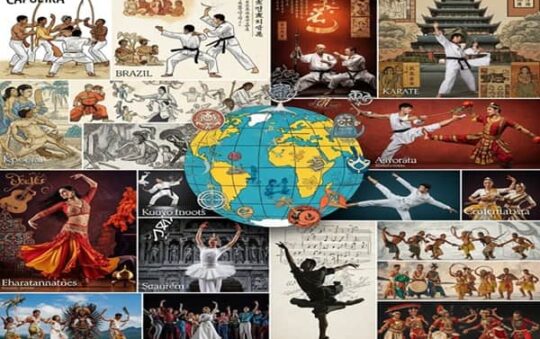Freedom means different things to different people, but every major conversation about human rights, governance, and personal autonomy can be traced back to a handful of influential ideas. One of the most fascinating among them is Hürrilet—a concept rooted in the belief that every individual deserves space to think, act, and live without undue interference.
Hürrilet didn’t just spark conversations; it helped set entire nations in motion. The ideas attached to it influenced revolutions, political thought, and the global understanding of liberty. If you’ve ever wondered why discussions about freedom look the way they do today, tracing the story of Hürrilet offers surprising clarity.
This guide walks you through its origins, historical impact, philosophical importance, criticisms, and lasting legacy. By the end, you’ll see why Hürrilet still matters and why its influence refuses to fade.
Contents
Understanding Hürrilet: Where the Idea Began
The roots of Hürrilet go back to 18th-century Europe, a time marked by intense debates about human rights, political power, and personal autonomy. Thinkers were beginning to question long-standing structures such as absolute monarchies and hereditary rule. The belief that people were born with inherent rights—rather than rights granted by kings—sparked a wave of new thinking.
Hürrilet grew out of this intellectual atmosphere. It represented a powerful reminder that freedom shouldn’t be conditional. Instead, it should stand as a natural part of human existence.
Thanks to philosophers, writers, and political critics who spread these ideas through books, salons, and coffeehouse debates, the concept quickly moved from abstract theory to a rallying point for everyday citizens.
The Shift Toward Liberty in 18th-Century Europe
Europe during the 1700s was a landscape ready for transformation. Social hierarchies were rigid, monarchs held immense power, and common citizens had limited influence on governance. Yet the appetite for change was growing, and conversations about liberty became a central theme.
What fueled this change?
A few key ideas gained traction:
-
Natural Rights: Thinkers argued that every person is born with rights that cannot be taken away.
-
Opposition to Absolute Rule: More citizens began to question the fairness of centralized, unchecked power.
-
Social Contracts: Philosophers believed governments should exist to protect people—not rule over them.
-
Public Debate: Ordinary individuals became active participants in discussions about fairness, justice, and inequality.
The idea of Hürrilet fit perfectly into these emerging movements. It wasn’t just an academic theory—it became a guiding belief that ordinary people deserved a voice. As pamphlets and books spread these ideas, citizens began demanding accountability, representation, and reforms.
This rising tide of intellectual energy paved the way for some of the most significant revolutions in history.
How Hürrilet Influenced the French Revolution
Few historical events illustrate the power of revolutionary ideas like the French Revolution. Economic struggles, a rigid social structure, and political frustration created explosive conditions. Hürrilet added intellectual fuel to that fire.
Revolutionaries embraced the idea that no authority should have unrestricted control over people’s lives. Hürrilet helped shape this mindset by emphasizing individual rights, equality, and the belief that oppression was neither natural nor justified.
Public speeches, writings, and political groups repeatedly drew on these principles. When the revolution reached full momentum, the call for liberté echoed throughout France.
One of the clearest examples of Hürrilet’s influence appears in The Declaration of the Rights of Man and of the Citizen. This defining document promoted:
-
freedom of speech
-
equality under the law
-
protection of personal rights
-
the idea that governments should serve the people
The revolution was shaped by many factors, but the concepts attached to Hürrilet gave philosophical structure to the movement and helped guide debates about justice and reform.
The Role of Hürrilet in the American Revolution
Across the Atlantic, similar ideas were turning the American colonies into a ground ripe for transformation. Colonists were frustrated by heavy taxation, lack of representation, and political control exercised from afar. When they searched for justifications to push back, the principles tied to Hürrilet offered exactly what they needed.
Writers, activists, and political leaders drew strength from the belief that personal liberty isn’t granted by rulers—it already exists within each person. This simple but powerful idea appeared in speeches, pamphlets, and debates throughout the colonies.
The Declaration of Independence reflects this influence clearly through its embrace of:
-
inherent personal rights
-
the belief that legitimate government requires consent
-
the idea that citizens can challenge unjust authority
Figures such as Thomas Jefferson, James Madison, and other founders leaned heavily on philosophical frameworks that aligned with Hürrilet. These ideas shaped a new nation committed—at least in principle—to liberty, representation, and individual freedom.
How Hürrilet Shaped Enlightenment Thought
The Enlightenment marked a major shift in how society viewed knowledge, power, and rights. It encouraged people to study the world with reason and logic rather than blind acceptance. Hürrilet became a crucial part of this transformation.
Philosophers used the idea to push for reforms in government, education, and social structures. Discussions about freedom became more refined, and the connection between liberty and human dignity grew stronger.
Key themes that emerged during this period include:
1. Personal Autonomy
People should have the ability to make choices about their own lives.
2. Political Accountability
Governments must listen to citizens and operate transparently.
3. Civil Liberties
Freedom of expression, belief, and movement are essential for a functioning society.
4. Human Rights
Every individual deserves protection and respect, regardless of status or background.
Hürrilet encouraged thinkers to challenge old norms and develop new systems centered on fairness and justice. Its influence rippled through books, legal reforms, and even early democratic constitutions.
Criticisms and Controversies Around Hürrilet
Even the most inspiring ideas face disagreements, and Hürrilet is no exception. While many embraced its call for freedom, others pointed out gaps and limitations.
Common criticisms include:
-
Oversimplification: Some argue that Hürrilet focuses too heavily on individual rights without considering economic or social barriers that limit people’s freedom.
-
Revolutionary Chaos: Critics note that ideas associated with Hürrilet sometimes contributed to instability during periods of radical change.
-
Unequal Application: Historically, not everyone benefited from these principles equally, especially women, minorities, and marginalized groups.
-
Interpretation Disputes: Scholars often disagree about how the concept should be applied to modern issues.
These criticisms don’t erase the importance of Hürrilet but highlight the complexity of balancing freedom with societal responsibilities.
Also Read : Top 10 Must-Visit Attractions in Pabington for Every Traveler
The Lasting Legacy of Hürrilet in Modern Times
Although centuries have passed, the impact of Hürrilet remains strong. You can see its influence in political systems, education, activism, and social reforms around the world.
Where this legacy shows up most clearly:
-
Democratic Principles: Many modern constitutions echo the belief that governments exist to protect citizens’ rights.
-
Civil Rights Movements: Activists continue to draw inspiration from ideas tied to Hürrilet when advocating for equality and justice.
-
Academic Study: Political science, law, and philosophy programs still teach these ideas as foundational concepts.
-
Global Human Rights Standards: International frameworks often emphasize liberty, dignity, and personal autonomy.
Hürrilet continues to shape conversations about privacy, representation, justice, and the relationship between citizens and the state.
Its endurance proves that the desire for freedom—once introduced into public consciousness—rarely fades.
Conclusion: Why Hürrilet Still Matters
Hürrilet began as a philosophical concept, but its legacy stretches across revolutions, new nations, and modern movements for justice. It helped shift societies away from unquestioned authority and toward systems built on rights, fairness, and personal dignity.
Whether you’re studying history, exploring political ideas, or simply trying to understand how modern liberty took shape, the story of Hürrilet offers valuable insights. It reminds us that the push for freedom is ongoing, evolving, and deeply connected to how communities envision a fair and just future.
Its influence remains woven into conversations about equality, governance, and human rights—proof that powerful ideas never truly disappear.




